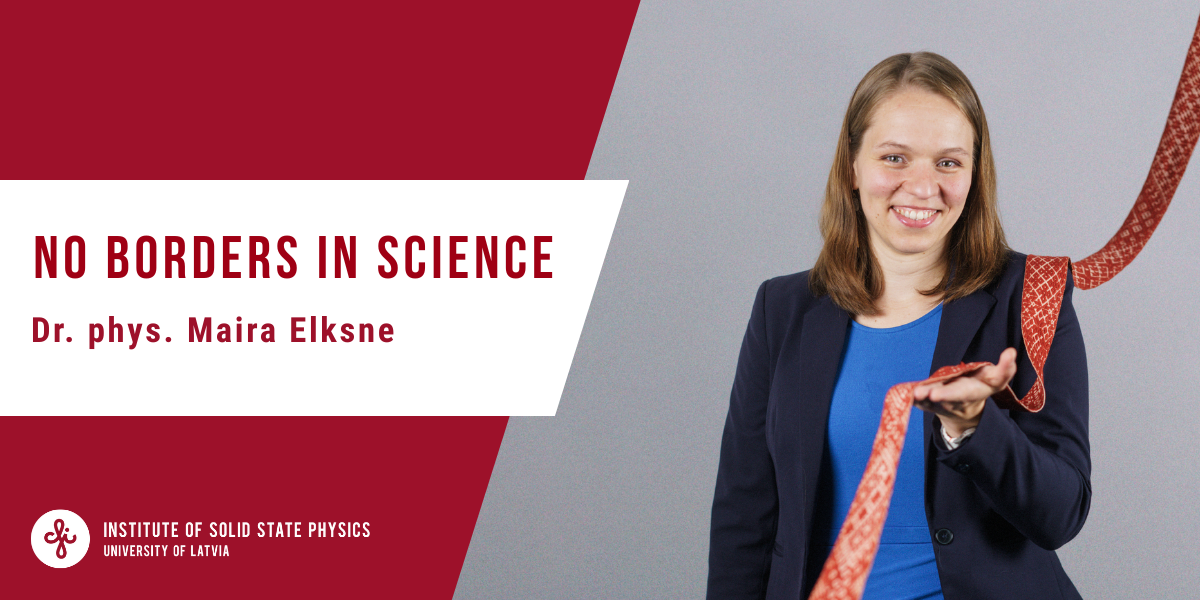
No Borders in Science is a series of interviews with Institute of Solid State Physics (ISSP UL) scientists and employees who are closely connected to the world outside of Latvia – by birth, attained education, or just their daily work. Through their stories we want to highlight the institute as a part of the global scientific network – a centre of excellence where collaboration isn’t limited by geography and the exchange of ideas, experiences, and efforts is placed at the forefront. This time, we speak with Maira Elksne about bringing know-how from abroad back home, as well as the importance of science producing real-world impact.
In your own words, what is your scientific specialty? Any topics of interest outside of it?
Nanofabrication – in short, it means creating structures and devices in the scale of nanometers (billion times less than a meter). I find it deeply inspiring to work on structures that can be infinitesimaly small yet are capable of driving major technological advances in, for example, electronics and quantum physics.
How did your journey in science lead outside of Latvia?
I went to study mathematics and physics in the UK for my bachelor’s because I’ve always been curious about the inner workings of the world. Encouraged by my project supervisor, I applied and got a scholarship PhD offer at Glasgow University to do nanofabrication and make Gallium nitride electronics at the James Watt Nanofabrication Centre, so I continued my studies there. During that time, I was also a teaching assistant in a Msc course on nanofabrication. Once my PhD was completed, I was offered to take over and teach that course, alongside continuing my research in nanofabrication, which I gladly accepted. Afterwards, I worked in two more semiconductor-electronics-based research projects – one of these projects was a great example of collaboration between industry and academia, so I emphasise the importance of such partnerships to this day.
And what led you back to the Institute of Solid State Physics?
I always wanted to move back to Latvia eventually, and when that plan was in motion and I started to look for jobs here, I was excited to find out that there is a cleanroom in Latvia – right here at ISSP UL. Of course, I wanted to utilise my expertise and continue my research, so I was very pleased that Latvia is among the countries making advances in this direction.
How does the ISSP UL assist scientists (proliferating participation in projects and events, supporting funding acquisition, endorsing growth opportunities, etc.)?
In my experience, ISSP UL is very encouraging when it comes to researchers participating in competitive research programmes where they provide administrative, legal and scientific support. They’re also very supportive of scientists partaking in conferences and networking opportunities that serve as avenues of growth for the scientists themselves, as well as new potential areas for the institute to explore.
Currently, what is your next goal – in science, career-wise, or just in general?
My next goal is to ensure that our scientific work leads to meaningful, real-world impact. As I previously said – I’ve seen first-hand what can happen when academia and science successfully collaborate with industry. That’s why I actively participate in initiatives like BioPhoT project calls where tangible results and business impact is prioritised from the get-go.